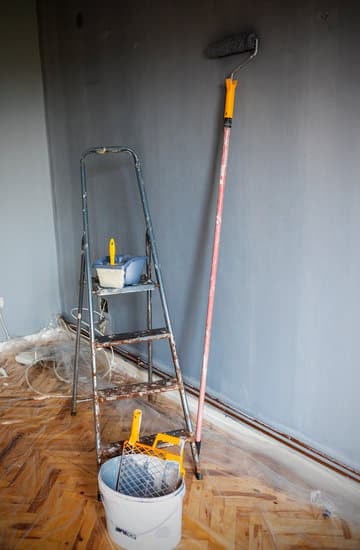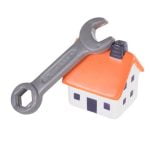When it comes to selling your home, one of the key factors that can significantly impact its value is the home appraisal. But what improves your home appraisal? Understanding the importance of this valuation process can help you make strategic decisions to enhance your property’s worth.
Home appraisals provide an unbiased assessment of a property’s market value, which is crucial for both buyers and sellers. For sellers, a higher appraisal value can mean a bigger return on investment, while buyers rely on accurate appraisals to secure financing for their home purchase. By taking steps to improve your home’s appraisal value, you can increase your chances of getting top dollar for your property.
In the following sections, we will explore various factors that can influence your home’s appraisal value. From enhancing curb appeal and making interior upgrades to maintaining your property and investing in energy-efficient features, there are several strategies you can employ to boost your home’s appraisal.
Additionally, understanding how neighborhood comparables and additional living spaces play a role in appraisals can provide valuable insights into maximizing your property’s worth. Let’s delve into these elements further to uncover what truly improves your home appraisal.
Curb Appeal
Improving the curb appeal of your home can have a significant impact on its overall appraisal value. A well-maintained exterior not only enhances the aesthetic appeal of your property but also gives a positive first impression to appraisers and potential buyers.
Simple upgrades such as landscaping, fresh paint, and a well-maintained driveway can go a long way in increasing your home’s value. In fact, studies have shown that improving curb appeal can result in an appraisal value that is 3-5% higher than homes with poor curb appeal.
One key aspect of enhancing curb appeal is ensuring that your home’s exterior is in good condition. This includes addressing any necessary repairs such as fixing roof damage, replacing worn-out siding, or upgrading outdated fixtures.
Appraisers often take note of these maintenance issues during their evaluation process, and neglecting them could potentially lower your home’s appraisal value. By investing in regular upkeep and repairs, you not only improve the appearance of your home but also demonstrate to appraisers that the property has been well-maintained.
In addition to cosmetic upgrades, incorporating energy-efficient features into your home’s exterior can also positively impact its appraisal value. Energy-saving improvements like solar panels, double-pane windows, or insulated doors not only reduce utility costs for homeowners but also contribute to a higher appraisal value. Appraisers consider these features as desirable assets that make the property more attractive to potential buyers, ultimately leading to a higher valuation for your home.
| Home Appraisal Improvement | Impact |
|---|---|
| Curb Appeal Enhancements | 3-5% increase in appraisal value |
| Maintenance and Repairs | Demonstrate proper upkeep and maintenance |
| Energy-Efficient Upgrades | Increase attractiveness and valuation of the property |
Interior Upgrades
When it comes to improving your home’s appraisal value, making upgrades to key areas like kitchens and bathrooms can have a significant impact. Not only do these spaces play a crucial role in the daily function of a home, but they also hold a lot of weight in determining its overall value. Here are some ways you can enhance these areas to increase your home’s appraisal:
- Upgrade your kitchen appliances to more energy-efficient models
- Install new countertops or refinish existing ones
- Update cabinet hardware for a modern look
- Consider adding an island or breakfast bar for added functionality
In the bathroom, simple changes can go a long way in improving its appeal and value. Updating fixtures, such as faucets and showerheads, can give the space a fresh and modern feel. Additionally, replacing old flooring with new tiles or hardwood can instantly elevate the room’s aesthetic. Here are some other upgrades that can improve your home appraisal specifically in kitchens and bathrooms:
- Investing in high-quality materials for countertops and backsplashes
- Adding extra storage solutions like built-in cabinets or pantry organizers
- Upgrading lighting fixtures to brighten up the space
- Updating plumbing fixtures for a more efficient and stylish look
By focusing on these key areas of your home, you can not only create a more functional and enjoyable living space but also increase its appraisal value. Whether you decide to tackle these upgrades yourself or enlist the help of professionals, investing in your kitchen and bathrooms is sure to pay off when it comes time for a home appraisal.
Maintenance
Maintaining your home is crucial not only for its overall upkeep but also for improving its appraisal value. Appraisers take into consideration the condition of your property when assessing its worth, so staying on top of maintenance tasks can positively impact the appraisal process. Regular upkeep and repairs help prevent major issues from arising, which could potentially devalue your home.
Preventive Maintenance
One way to ensure that your home maintains its value over time is by implementing a preventive maintenance schedule. This includes tasks such as checking and repairing any leaks, keeping up with HVAC system maintenance, inspecting the roof for damages, and addressing any structural issues promptly. By proactively addressing these maintenance needs, you not only improve your home’s longevity but also increase its appraisal value.
Curb Appeal
In addition to preventive maintenance, enhancing your home’s curb appeal is another aspect that appraisers look at when determining its value. Simple upgrades like landscaping, exterior painting, maintaining a well-kept lawn, and fixing any visible damages to the exterior can go a long way in improving your home’s overall aesthetic appeal. A visually appealing property signals to the appraiser that the homeowner has taken pride in maintaining their home which can positively impact the final appraisal value.
Investing in Repairs
When it comes to repairs, it’s important to address any issues before they escalate into bigger problems. Whether it’s fixing a leaky faucet or repairing a cracked foundation, investing in necessary repairs shows that you are committed to preserving the integrity of your home.
Not only will this improve the overall condition of your property but it will also lead to a higher appraisal value when it comes time to assess the worth of your home. By prioritizing regular upkeep and timely repairs, you set yourself up for a successful appraisal process and potentially increase your property’s market value in the long run.
Energy Efficiency
Another effective way to boost energy efficiency and enhance your home’s appraisal value is by upgrading to energy-efficient appliances. Energy Star-rated appliances not only consume less electricity but also add a modern touch to your home. These upgrades not only make your property more appealing to potential buyers but also demonstrate a commitment to sustainability that can increase its overall value.
In addition to insulation and appliances, installing energy-efficient windows and doors can further improve your home’s appraisal value. Energy-efficient windows prevent heat loss in the winter and heat gain in the summer, reducing the strain on heating and cooling systems.
Similarly, energy-efficient doors help maintain indoor temperatures, improve comfort levels, and contribute to lower energy costs. By focusing on these key areas of energy efficiency, you can make significant improvements to your home’s overall appraisal value.
| Energy Efficiency Upgrade | Impact on Home Appraisal |
|---|---|
| High-Quality Insulation | Regulates indoor temperatures, reduces energy consumption |
| Energy-Efficient Appliances | Lower utility bills, add modern touch |
| Energy-Efficient Windows and Doors | Prevent heat loss/gain, reduce strain on HVAC systems |
Neighborhood Comparables
When it comes to home appraisals, one key factor that greatly influences the value of your property is the neighborhood it is located in. Neighborhood comparables play a significant role in determining how much your home is worth in the eyes of an appraiser. This means that even if you have made extensive upgrades and renovations to your home, its appraisal value can still be impacted by the overall desirability and market trends of the surrounding area.
Appraisers consider various factors when evaluating neighborhood comparables, such as the quality of schools in the area, proximity to amenities like parks and shopping centers, crime rates, and overall property values of nearby homes. Homes located in neighborhoods with high demand and limited inventory tend to have higher appraisal values compared to those in less desirable areas.
Therefore, it is essential for homeowners to be aware of these factors and take them into consideration when looking to improve their home’s appraisal value.
To ensure that your home stands out positively in comparison to other properties in the neighborhood, consider enhancing its curb appeal, investing in energy-efficient upgrades, and keeping up with regular maintenance tasks. Additionally, staying informed about market trends and working with a knowledgeable real estate agent can also help you make strategic decisions that can positively impact your home’s appraisal value.
By understanding how neighborhood comparables influence your home’s worth, you can take proactive steps to increase its value and maximize its potential during the appraisal process.
Additional Living Spaces
When it comes to improving your home’s appraisal value, one of the most effective strategies is to add additional living spaces or features that enhance the overall appeal and functionality of the property. By expanding your home with extra rooms or unique features, you can significantly increase its market value and attract potential buyers looking for more space or special amenities.
Here are some ideas for adding extra rooms or features to improve your home’s appraisal:
- Consider converting a basement or attic into a livable space such as a guest room, home office, or entertainment area. This not only increases the usable square footage of your home but also adds value by providing additional functionality.
- Adding a sunroom or screened-in porch can create a comfortable indoor-outdoor living space that appeals to buyers seeking relaxation and natural light. These spaces are highly desirable and can set your home apart from others on the market.
- Investing in upgrades like a backyard deck, patio, or outdoor kitchen can enhance your home’s appeal for entertaining and enjoying outdoor activities. These features not only add value but also improve the overall lifestyle quality of the property.
By incorporating these additional living spaces into your home, you not only increase its aesthetic appeal but also boost its appraisal value significantly. When appraisers assess your property, they take into account the size, layout, and functionality of each room, as well as any unique features that set your home apart from others in the neighborhood.
Therefore, investing in extra rooms or special features is a wise decision to improve your home’s overall appraisal value and maximize its market potential.
Professional Appraisal Tips
When it comes to improving your home’s appraisal value, getting insights from professional appraisers can be incredibly valuable. These experts have a keen eye for details and know exactly what factors play a crucial role in determining the worth of a property. By understanding what they look for when evaluating a home, you can make informed decisions on how to enhance your property’s value.
Attention to Detail Matters
One key aspect that appraisers pay close attention to is the overall condition of your home. This includes both the exterior and interior components. From the quality of materials used in construction to the level of craftsmanship in renovations, every detail matters. Ensuring that your home is well-maintained and free from any visible defects can make a significant difference in its appraisal value.
Upgrades That Add Value
Appraisers also take note of any upgrades or improvements that have been made to the property. Features like updated kitchens, bathrooms, or energy-efficient appliances can have a positive impact on your home’s appraisal value. It’s essential to invest in upgrades that not only enhance your living space but also contribute to the overall value of the property.
Comparable Sales Analysis
In addition to inspecting your home, appraisers also look at comparable sales in your neighborhood to determine an accurate valuation. Understanding how these sales influence your property’s worth can help you strategize on how to improve its appraisal value. Keeping track of market trends and staying informed about recent sales in your area can give you an edge when it comes to maximizing your home’s worth.
Conclusion
In conclusion, it is evident that there are various factors that can significantly impact the appraisal value of your home. Improving your home’s curb appeal, making interior upgrades, staying on top of maintenance tasks, investing in energy-efficient upgrades, considering neighborhood comparables, and adding additional living spaces are all crucial elements that can enhance the overall valuation of your property.
By focusing on these key aspects highlighted throughout this article, homeowners can not only increase their home’s appraisal value but also create a more attractive and desirable property. Whether you are looking to sell your home in the future or simply want to boost its worth for personal satisfaction, taking these steps can make a substantial difference in what improves your home appraisal.
Ultimately, understanding what appraisers look for when evaluating a property and actively working to enhance those features can lead to a higher appraisal value. By implementing the suggestions provided by experts and incorporating them into your home improvement plans, you are setting yourself up for success in maximizing the worth of your most significant investment – your home.
So remember, by taking proactive steps to improve both the aesthetics and functionality of your property, you can ultimately increase its appeal and value in the eyes of appraisers and potential buyers alike.
Frequently Asked Questions
How Can I Get More Out of My Appraisal?
To get more out of your appraisal, it’s important to prepare your home before the appraiser arrives. Make sure your home is clean, well-maintained, and clutter-free.
Provide any documentation or information that can highlight the value of your property, such as recent renovations or improvements. Be present during the appraisal to answer any questions the appraiser may have and provide insights into your home’s unique features.
What Is the Biggest Factor in a Home Appraisal?
The biggest factor in a home appraisal is the location of the property. The neighborhood, surrounding amenities, school district, and proximity to essential services all play a significant role in determining the value of a home. Comparable sales in the area also heavily influence the appraised value, so being in a desirable location can positively impact your appraisal.
What Negatively Affects Home Appraisal?
Several factors can negatively affect a home appraisal. These include lack of maintenance or repairs needed in the property, outdated fixtures or finishes, structural issues, noisy locations (like being close to highways or industrial areas), and non-permitted additions or modifications.
Additionally, if there are few comparable sales in the area or if similar homes have sold for less due to economic conditions, this can also bring down the appraised value of a property.

I’m thrilled to have you here as a part of the Remodeling Top community. This is where my journey as an architect and remodeling enthusiast intersects with your passion for transforming houses into dream homes.





